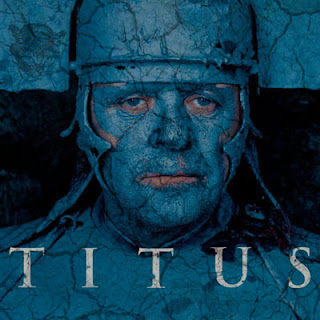
Bluebird
By
Charles Bukowski
there's a bluebird in my heart that
wants to get out
but I'm too tough for him,
I say, stay in there, I'm not going
to let anybody see
you.
there's a bluebird in my heart that
wants to get out
but I pour whiskey on him and inhale
cigarette smoke
and the whores and the bartenders
and the grocery clerks
never know that
he's
in there.
there's a bluebird in my heart that
wants to get out
but I'm too tough for him,
I say,
stay down, do you want to mess
me up?
you want to screw up the
works?
you want to blow my book sales in
Europe?
there's a bluebird in my heart that
wants to get out
but I'm too clever, I only let him out
at night sometimes
when everybody's asleep.
I say, I know that you're there,
so don't be
sad.
then I put him back,
but he's singing a little
in there, I haven't quite let him
die
and we sleep together like
that
with our
secret pact
and it's nice enough to
make a man
weep, but I don't
weep, do
you?
(From: Charles Bukowski, "The Last Night of the Earth Poems")
nel mio cuore c’è un uccello azzurro che
vuole uscire
ma con lui sono inflessibile,
gli dico: rimani dentro, non voglio
che nessuno ti veda.
nel mio cuore c’è un uccello azzurro che
vuole uscire
ma io gli verso whisky addosso e aspiro
il fumo delle sigarette
e le puttane e i baristi
e i commessi del droghiere
non sanno che lì dentro
c’è lui
nel mio cuore c’è un uccello azzurro che
vuole uscire
ma io con lui sono inflessibile,
gli dico:
rimani giù, mi vuoi far andare fuori
di testa?
vuoi mandare all’aria tutto il mio
lavoro?
vuoi far saltare le vendite dei miei libri in
Europa?
nel mio cuore c’è un uccello azzurro che
vuole uscire
ma io sono troppo furbo, lo lascio uscire
solo di notte qualche volta
quando dormono tutti.
gli dico: lo so che ci sei,
non essere triste
poi lo rimetto a posto,
ma lui lì dentro un pochino canta,
mica l’ho fatto davvero morire,
dormiamo insieme
così col nostro
patto segreto
ed è così grazioso da
far piangere un uomo,
ma io non piango,
e voi?
By
Charles Bukowski
there's a bluebird in my heart that
wants to get out
but I'm too tough for him,
I say, stay in there, I'm not going
to let anybody see
you.
there's a bluebird in my heart that
wants to get out
but I pour whiskey on him and inhale
cigarette smoke
and the whores and the bartenders
and the grocery clerks
never know that
he's
in there.
there's a bluebird in my heart that
wants to get out
but I'm too tough for him,
I say,
stay down, do you want to mess
me up?
you want to screw up the
works?
you want to blow my book sales in
Europe?
there's a bluebird in my heart that
wants to get out
but I'm too clever, I only let him out
at night sometimes
when everybody's asleep.
I say, I know that you're there,
so don't be
sad.
then I put him back,
but he's singing a little
in there, I haven't quite let him
die
and we sleep together like
that
with our
secret pact
and it's nice enough to
make a man
weep, but I don't
weep, do
you?
(From: Charles Bukowski, "The Last Night of the Earth Poems")
nel mio cuore c’è un uccello azzurro che
vuole uscire
ma con lui sono inflessibile,
gli dico: rimani dentro, non voglio
che nessuno ti veda.
nel mio cuore c’è un uccello azzurro che
vuole uscire
ma io gli verso whisky addosso e aspiro
il fumo delle sigarette
e le puttane e i baristi
e i commessi del droghiere
non sanno che lì dentro
c’è lui
nel mio cuore c’è un uccello azzurro che
vuole uscire
ma io con lui sono inflessibile,
gli dico:
rimani giù, mi vuoi far andare fuori
di testa?
vuoi mandare all’aria tutto il mio
lavoro?
vuoi far saltare le vendite dei miei libri in
Europa?
nel mio cuore c’è un uccello azzurro che
vuole uscire
ma io sono troppo furbo, lo lascio uscire
solo di notte qualche volta
quando dormono tutti.
gli dico: lo so che ci sei,
non essere triste
poi lo rimetto a posto,
ma lui lì dentro un pochino canta,
mica l’ho fatto davvero morire,
dormiamo insieme
così col nostro
patto segreto
ed è così grazioso da
far piangere un uomo,
ma io non piango,
e voi?






















